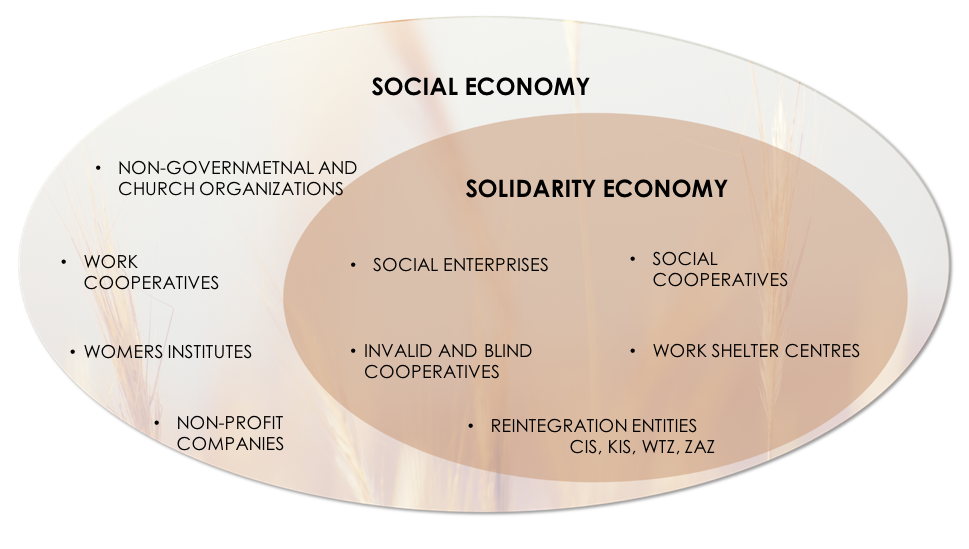English version
About social economy
Social and solidarity economy is a civic activity area that through economic activity and/or public benefit serves:
- vocational and social integration of socially excluded people,
- creation of work places,
- provision of social services of general interest,
- local development.
According to a definition formulated by a European Research Network (EMES), social entrepreneurship initiatives should meet certain conditions:
- economic (conducting continuous, regular economic activity, independently, sovereignly according to public institutions; taking economic risk; at least a minimum number of paid employees)
- and social (visibly oriented at social utility objective of an undertaking; grassroots movement, civic; specific, democratic way of management; community action; limited profit distribution).
Social economy entities, in this especially social enterprises, are organizations that join economic activity (in Polish legal system - economic and/or paid statutory activity) with social activity - widely understood - as supporting its employees being in a difficult situation (e.g. disabled, homeless) and undertaking cultural actions for the citizens of the community or local tourism development.
The key to understand the specificities of this activity and distinguish it from a "traditional" enterprise is to bear in mind that no matter how crucial the economic activity is, it has got to serve social needs.
After many years of discussion about the definition of the social economy sector, a group of entities has been distinguished, whose basic aim is social and vocational reintegration of socially excluded persons. This area is called solidarity economy which is a part of social economy and it is meant to undertake vocational actions and social integration, in this vocational and social reintegration of above-mentioned persons, as well as social and vocational rehabilitation of persons with disabilities.

BASIC DATA ABOUT THE SOCIAL ECONOMY SECTOR IN POLAND
- In 2018 there were 88,1 K registered non-profit organizations (the most represented: associations (69,1 K) and foundations (14,5 K)).
- They bring together 8,9 mln members and employ 141, 4 K people.
- Ca. 10% non-profit organizations posess public benefit status (9,3 K).
- Social economy entities constitue 99,1% - 87,3 K active organizations.
SOCIAL ECONOMY ENTITIES IN THE MAŁOPOLSKA REGION
In the Małopolska region there are 8,7 K different NGO’s!
They constitute 9,8% of all national organizations!
8,6 K organizations in Małopolska have been described as social economy entities.
The biggest number of social economy entities in one area is in Cracow – 2,6 K which constitutes about 30% of social economy entities in Małopolska.
18,5 K employees on a work contract, in this:
- 3,6 % of all employees are disabled people (ca. 700 persons)
- Women are over represented in this sector - 74,6% employee
- 38,2 K employees on a civil-legal contract.
For 3,4 K employees that is the main work place.







